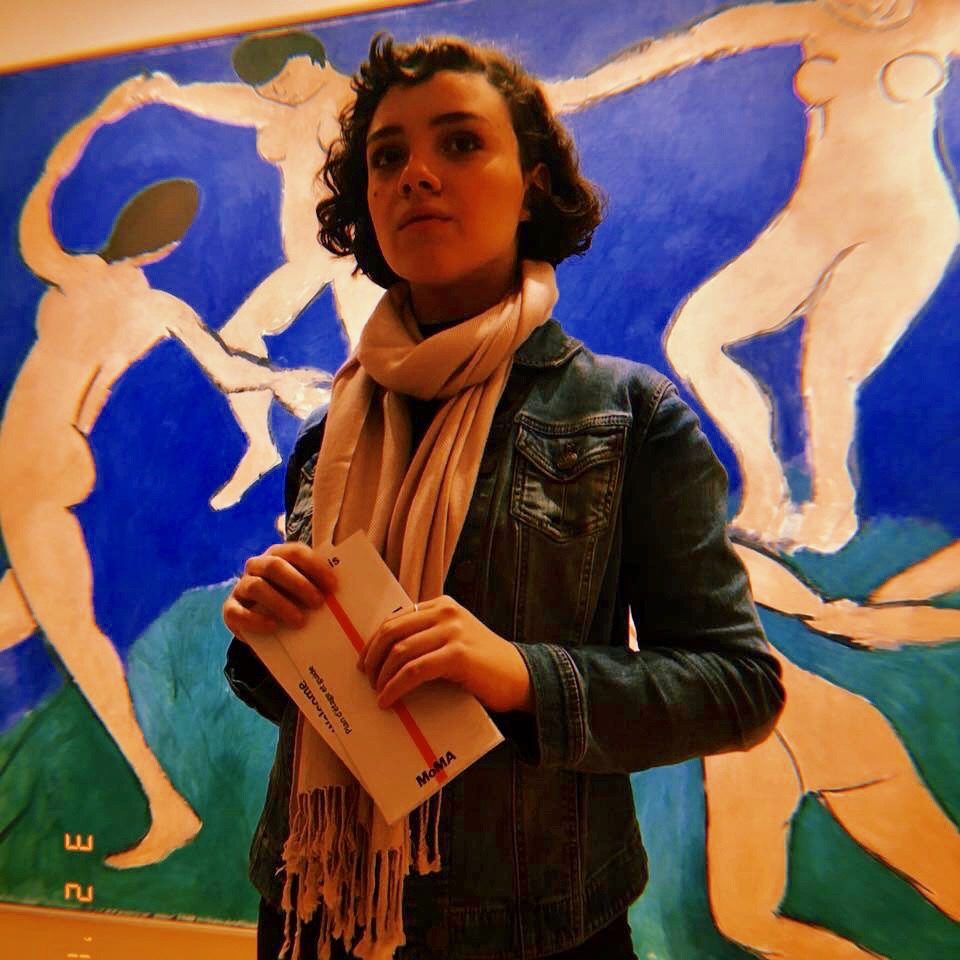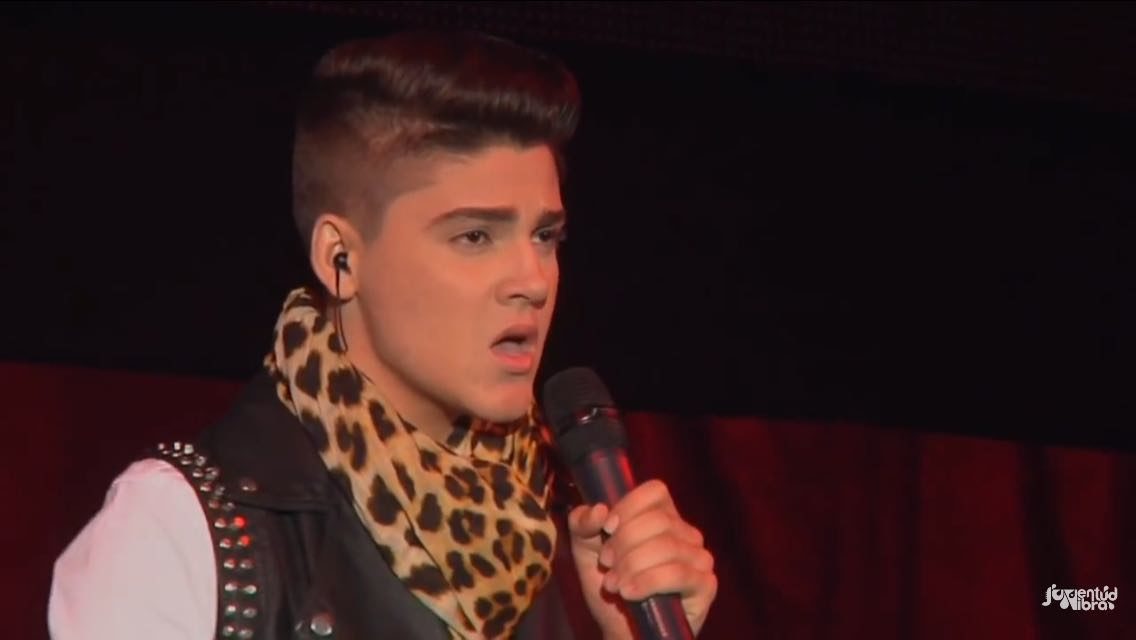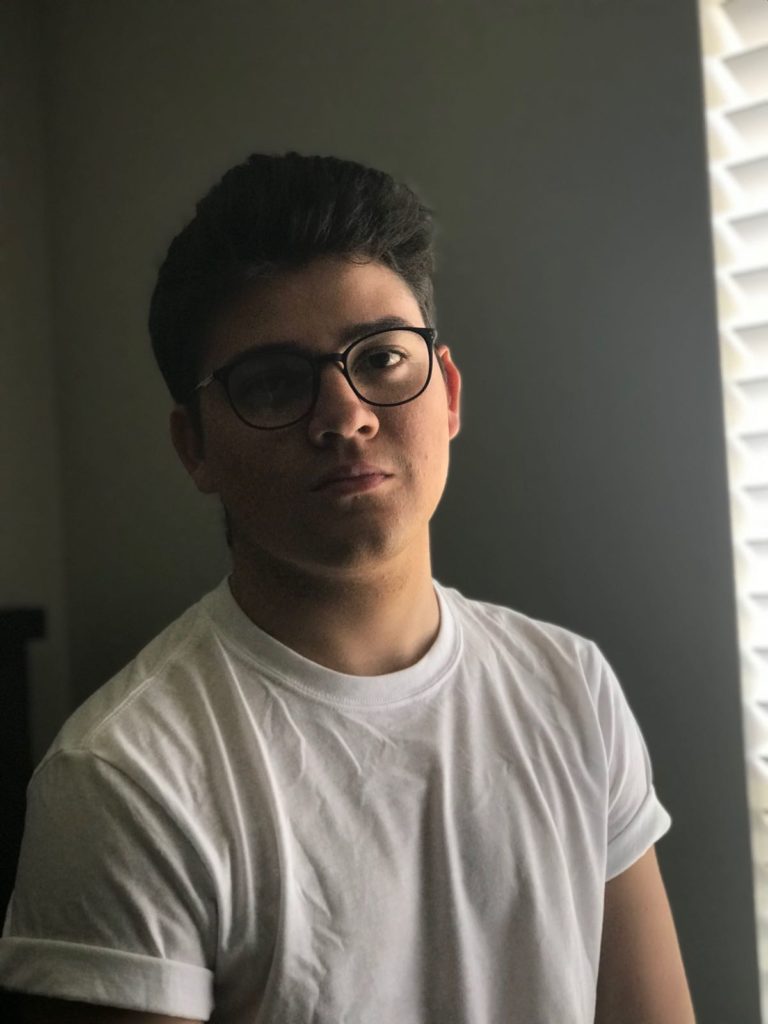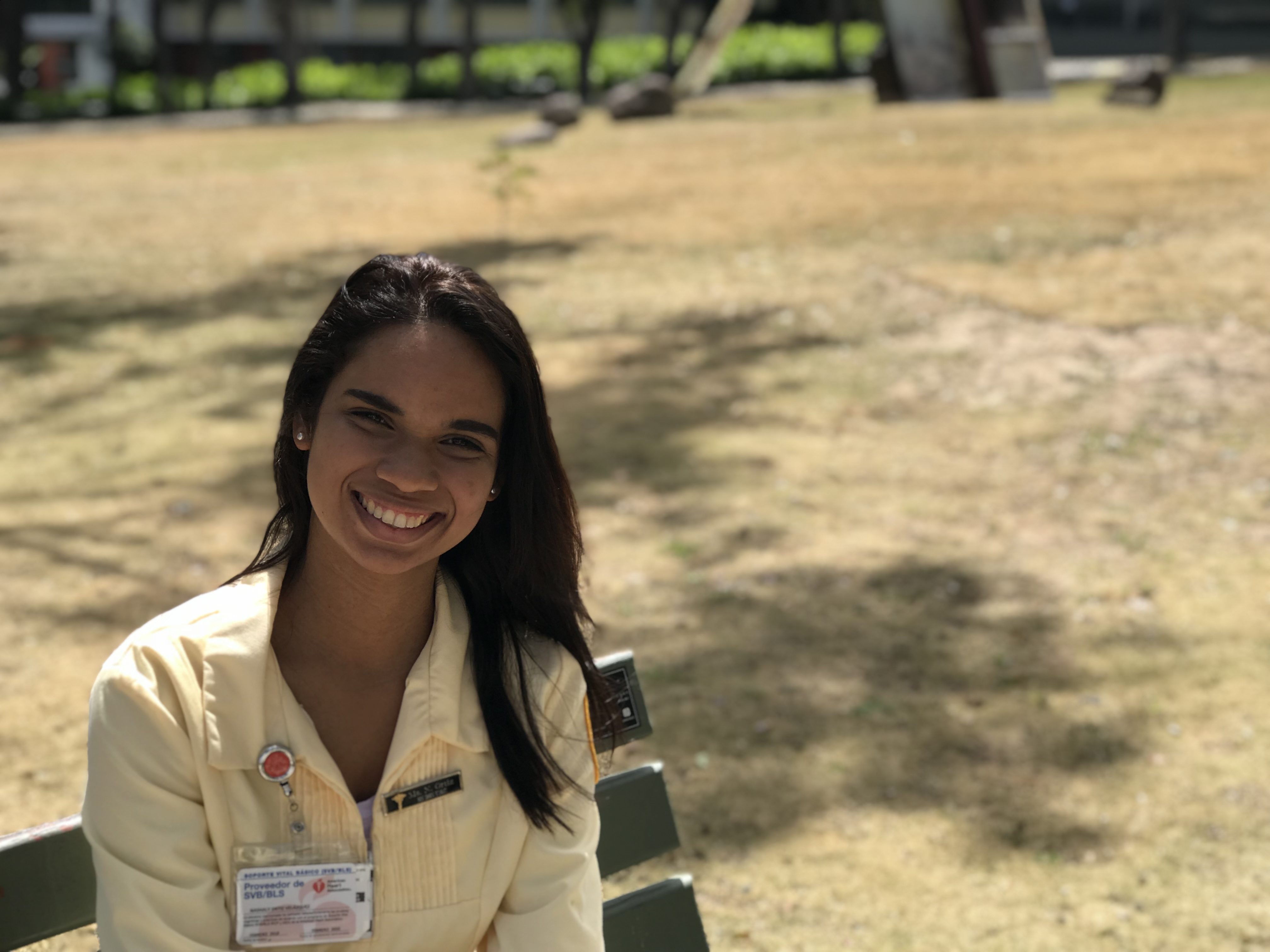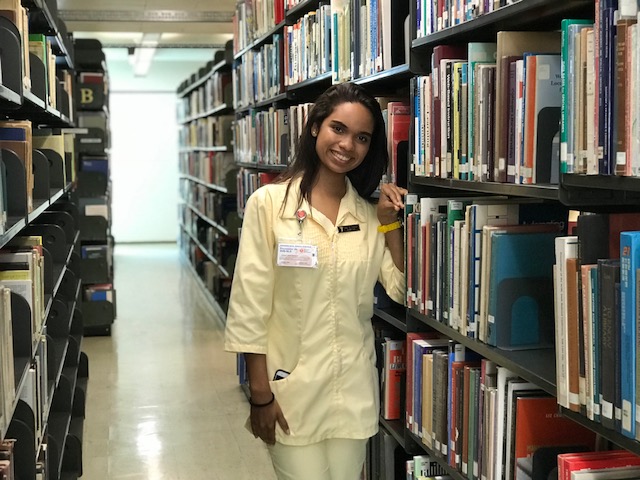From PR to NYC – “Sometimes I Feel Guilty that I’m Over Here and I’m Not Helping Rebuild Puerto Rico”
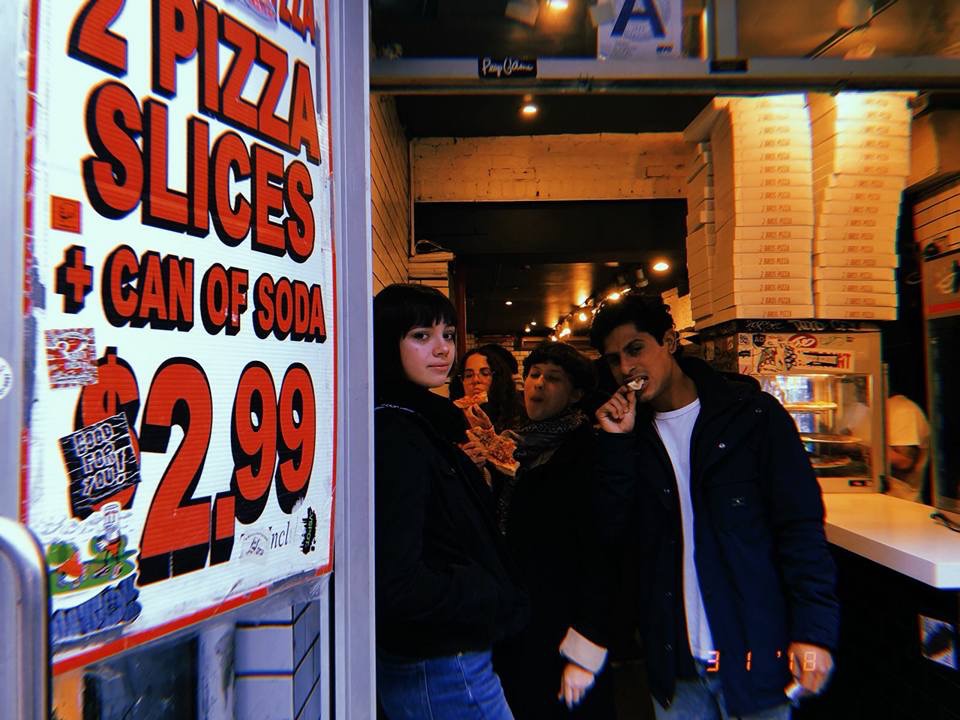
Photo courtesy of Ivenneth Padilla
Leer en español
In January 2018, 21-year-old Ivenneth Padilla said goodbye to Puerto Rico and to her family and friends. Hurricane Maria devastated her hometown of Orocovis, located in the center of the island, and completely changed her reality. This prompted her to look for opportunities to study outside the island. New York University (NYU) opened the doors for her in a city that never sleeps and full of academic possibilities. (In the fall of 2017 NYU announced it would provide free tuition for the spring 2018 semester to qualified college students in Puerto Rico.)
The young journalist speaks with her family every day. They are in good health, although they still suffer from frequent power blackouts. She misses them immensely and she’s worried about the well-being of her younger siblings. However, NYU has helped her develop herself and her interests; she has taken art courses and discovered that she loves to dance.
This conversation has been edited for clarity and length.
How did you feel when Hurricane Maria hit?
I suffered for my family. They are the most important thing to me, and seeing them in those conditions was difficult. We didn’t have power or water, we could barely leave the house due to the amount of debris on the roads. Even finding food or water became a challenge. I have two younger brothers, one is 12 and the other one 9, and it was very difficult to see them in that situation. They really like to play baseball and they couldn’t do it anymore. They couldn’t go to school, they were living without water or electricity. It is difficult for children to understand, and both of them would cry every night.
Why did you decide to leave Puerto Rico?
Not knowing what was going to happen in Puerto Rico or at my university, I doubted I would be able to continue my studies. Additionally, I was a part-time student working more than 40 hours a week in order to help my family, since my parents were not getting a salary. My cousin told me about the program at NYU and I decided to apply. I thought, ‘I have to keep moving forward, even if it pains me to be separate from my family.’
What impact did this scholarship have on you and your family?
It means fewer expenses for my family. NYU pays for my classes, books, food, housing and medical insurance. It was a big relief, even more so in a time of so much economic instability.
Will you stay in New York or return to Puerto Rico?
That is a difficult question because sometimes I want to stay and other times I want to go back. Sometimes I feel guilty that I’m over here and I’m not helping rebuild Puerto Rico. But the experience at NYU has been spectacular. NYU is more than a university, it’s a lifestyle. The education here turns into your daily routine and it’s not stressful. Here I feel like I’m building my future in the journalism capital, New York City. I have stood in front of the New York Times building, wishing that they would let me in to see it. This university has allowed me to leave my comfort zone and do the things that I couldn’t do in Puerto Rico, like study dancing. However, deep down, I do want to return to my island.
De Puerto Rico a Nueva York: “A veces me siento culpable de que estoy acá y no ayudando en la reconstrucción de Puerto Rico”
Ivenneth Padilla, puertorriqueña de 21 años de edad, se despidió de Puerto Rico, su familia y de sus amigos en enero de este año. El huracán María devastó su pueblo Orocovis, ubicado en el centro de la Isla, y distorsionó su realidad, por lo que intentó conseguir oportunidades de estudio fuera de la Isla. La Universidad de Nueva York (NYU) le abrió las puertas a la magia de una ciudad que nunca duerme, llena de posibilidades académicas. (En el otoño de 2017, NY anunció que otrogaría colegiatura gratis para el semestre de la primavera de 2018, a estudiantes universitarios puertorriqueños que calificaran en el programa).
La joven periodista habla con los miembros de su familia todos los días, quienes hoy se encuentran bien, aunque todavía la luz eléctrica se les va con frecuencia. Los extraña inmensamente y le preocupa el bienestar de sus hermanos menores. Sin embargo, NYU la ha ayudado a conectarse con ella misma y sus intereses; ha tomado cursos de arte y descubrió que le encanta el baile.
Esta conversación ha sido editada por claridad y extensión.
¿Cómo te sentiste una vez pasó el huracán María?
Yo sufrí por mi familia. Para mí son lo más importante, y verlos en estas condiciones fue fuerte. No teníamos luz ni agua, casi no podíamos salir de nuestra casa por la cantidad de escombros en las carreteras. Y hasta llegó el momento en que conseguir comida y agua para tomar era un reto. Tengo dos hermanos menores, uno de 12 años y otro de 9 años, y fue bien difícil verlos en esta situación. A ellos les gusta mucho jugar pelota y ya no podían hacerlo, no podían ir a la escuela, estaban viviendo sin electricidad y sin agua. A los niños pequeños se les hace difícil entender, y ellos dos lloraban por las noches.
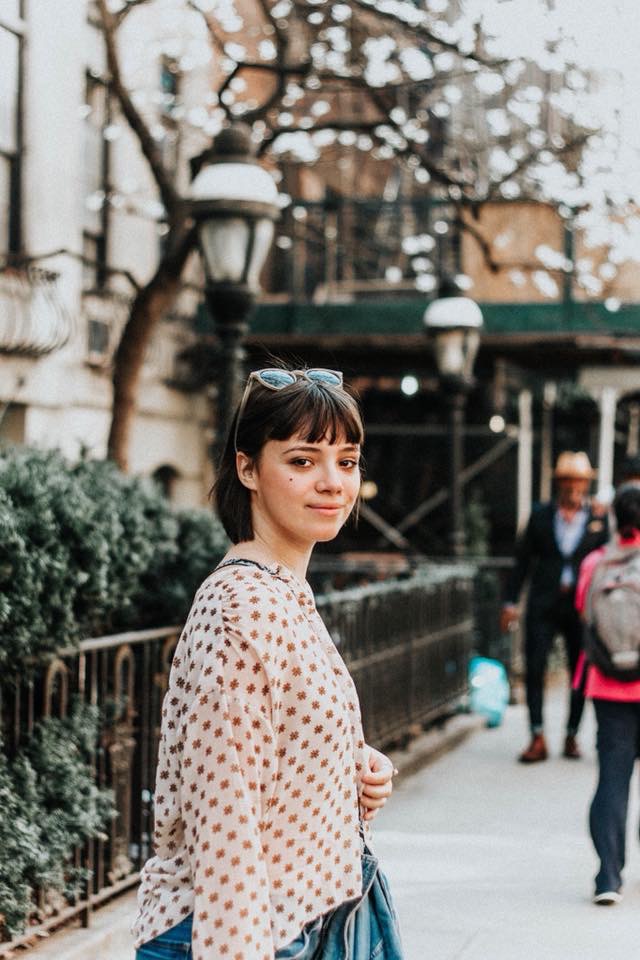
Photo courtesy of Ivenneth Padilla
¿Por qué tomaste la decisión de irte de Puerto Rico?
Llegó el momento que yo no sabía qué iba a pasar en Puerto Rico ni en mi universidad. Dudé sobre si podría continuar mi bachillerato. Además, siendo estudiante part-time estaba trabajando más de 40 horas a la semana para ayudar a mi familia, ya que mis padres no estaban recibiendo ningún ingreso. Mi prima me habló del programa de NYU y decidí solicitar. Pensé, ‘tengo que seguir pa’lante aunque me duela separarme de la familia’.
¿Qué impacto tuvo esta beca en ti y en tu familia?
Es un gasto menos para mi familia. Acá, NYU me paga las clases, los libros, la comida, el hospedaje y el plan médico. Fue un gran alivio sobre todo en un momento de tanta inestabilidad económica.
¿Te quedas en Nueva York o regresas a Puerto Rico?
Es una pregunta difícil porque a veces quiero quedarme y a veces quiero regresar. A veces me siento culpable de que estoy acá y no ayudando en la reconstrucción de Puerto Rico. Pero la experiencia en NYU ha sido espectacular. NYU es más que una universidad, es un estilo de vida. La educación aquí se convierte en tu rutina diaria y no en un estresor. Aquí me siento que estoy construyendo mi futuro dentro de la capital del periodismo, la ciudad de Nueva York. Me he parado frente al edificio del New York Times deseosa de que me dejen entrar a verlo. Esta universidad me ha permitido salir de mi zona de confort y hacer cosas que en Puerto Rico no podía hacer, como estudiar baile. Sin embargo, por dentro, sí quiero volver a mi isla.
This story was written by Sophia Bozzo.
This story is part of a collaboration between Feet in 2 Worlds and the journalism program at Universidad del Sagrado Corazón in San Juan, Puerto Rico. Translated from the original Spanish by John Pink.
Fi2W is supported by the David and Katherine Moore Family Foundation, the Ralph E. Odgen Foundation, the J.M. Kaplan Fund, an anonymous donor and readers like you.


